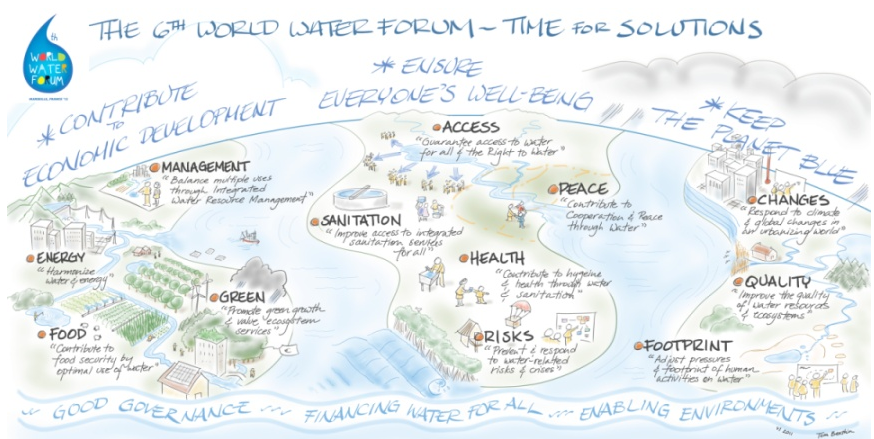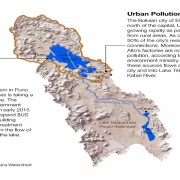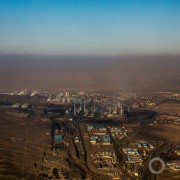Q&A: Ben Braga on the 6th World Water Forum
Ben Braga, the president of the International Committee for the 6th World Water Forum and the vice president of the World Water Council, talks with Circle of Blue about the Forum next week, the Rio+20 Summit in June, and solutions to the world water crisis.
Less than a week before the French city of Marseille hosts the 6th World Water Forum (March 12-17) — the triennial global convening of water professionals, politicians, business leaders, international organizations, scientists, and the public to tackle all things water — the United Nations announced that the international target to halve the number of people without access to safe drinking water has been met ahead of the 2015 deadline. But the U.N. tempered the news with a warning that meeting the Millennium Development Goals on sanitation is largely offtrack.
Circle of Blue spoke with Ben Braga about the upcoming 6th World Water Forum, which vows to be the global convening for solutions and commitments.


, a Bulgaria native, is a Chicago-based reporter for Circle of Blue. She co-writes The Stream, a daily digest of international water news trends.
Interests: Europe, China, Environmental Policy, International Security.









Loïc Fauchon, President of the World Water Council, launched the 6th World Water Forum this week, with an opinion on what needs to be provided for ‘people to live in dignity, health and prosperity’, when he said “…..first and foremost, energy and water so they can finally pull themselves out of poverty…..”
The developing world is now, and will be for a couple of decades to come, spending £billions or maybe £trillions on coal fired power stations. And who can blame them, with 40,000 people per day dying from preventable diseases, for the sake of affordable energy and potable water?
Coal fired power stations use and contaminate vast volumes of fresh water to cool the waste heat from the steam turbines used to generate electricity. This heat, containing nearly two thirds of the heat from the coal, is truly wasted.
In the 50s and 60s, whilst the UK trod a path to a nuclear technology dead end, the US Administration withdrew funding to technological development of Molten Salt Breeder Reactors (MSBRs) in what is surely the ‘Saddest Accident of History’ ( http://lftrsuk.blogspot.com/2012/03/follow-up-to-i… ) .
MSBRs, now known as Liquid Fluoride Thorium Reactors (LFTRs), use gas turbines to drive the electrical generators and the ‘waste’ heat from these (just over half of what the reactor produces) is at a high enough temperature to desalinate water. So, nothing is ‘wasted’; huge volumes of potable water can be produces from brackish ground water or sea water – and the cost is NEXT TO NOTHING.
The Heads of State of the developing world need to urgently liaise to get the first-of-a-kind LFTR up and running, for a piddling amount of money. This will get investment stimulated to the point that venture capitalists and fund managers are knocking the door down to get into the most essential technology of the 21st Century.
In the days of slide rules and compasses, when all machining and planning was done manually, the Molten Salt Reactor Experiment (MSRE) was funded in 1960, switched on in 1965 and ran for many thousands of full power hours until 1969. The MSRE was two thirds of what a LFTR is, so in these days of CAD/CAM, computerised 3D modelling and planning, with the right will, a LFTR could be ready for action in 5 years. Within not much more than a decade, we could have factory built, transportable modular units coming off production lines. Their safety is inherent and their ‘greenness’ unrivaled. See:http://lftrsuk.blogspot.com/p/benefits-of-lftrs.ht… .